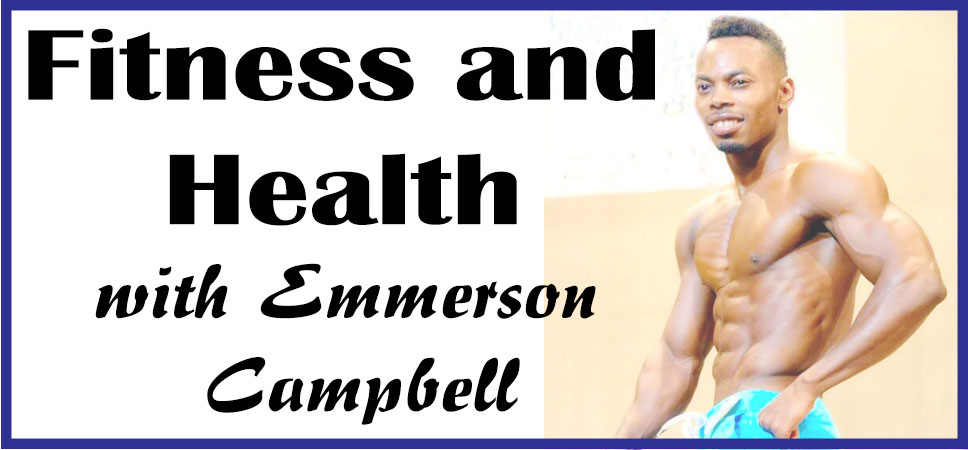Have you ever been drinking a beverage and noticed that it says it contains zero calories?
I have. During last week, I was drinking a Coke Zero, since I am now cutting for a show this month end. As I ate some chicken breast salad and slurped on the soda, a thought came to mind: ‘How can something besides water have no calories?’
 So being the avid researcher I like to think I am, I went to work digging for some information.
So being the avid researcher I like to think I am, I went to work digging for some information.
What I found may shock you.
The bottom line? They lie. Aside from water, no truly calorie-free food or drink exists. So why then do so many things say they have zero calories? As it turns out, the US Food and Drug Administration (FDA) legally allows manufacturers to label anything with less than five calories as having zero calories. (For example, the “no-calorie sweetener,” trademarked Splenda, really has 3.4 calories per packet.)
Shocked? Well hopefully you’re sitting down, because aside from factory-packaged stuff, “negative-calorie foods” are also a myth. The thinking behind negative-calorie foods like celery or cucumbers, is that you expend more calories digesting them than they contain, hence, you’ll burn calories merely by consuming them. Unfortunately, there’s no science to back this up. A single stalk of celery actually has about six calories, but you only burn about a half a calorie digesting it, meaning its net caloric value is around five-and-a-half calories.
Ice water is the only exception. Water has no calories, and since your body has to expend energy to keep at a constant 98 degrees, you do end up burning about eight calories per eight-ounce glass of ice water. If you drank eight of them per day, this would translate to a total loss of about six pounds… in a year.
More research also suggested that any zero-calorie food or beverage you consume can lead not to weight loss, but to weight gain.
How can this be? Our bodies are complicated and finely tuned instruments, and explaining how they work is no simpler than explaining Google’s algorithm. So the calories in/calories out view of weight loss misses a lot of the nuance. In fact, zero calorie foods cause us to gain weight in several ways. These include:
- Dampening your natural fat burners. The body burns a lot of calories trying to turn a pat of butter into a pat of you. But highly processed foods—which is what most zero calorie foods are—come so highly processed that they’re basically digested for you, so they don’t keep the body’s natural fat-burners firing.
- They cause inflammation—and that causes weight gain. Introduce a bunch of chemicals into your digestive tract and you’re basically introducing an irritant. That can interfere with the body’s ability to absorb nutrients in food, and it calls the digestive system’s natural defences into play, creating inflammation. Inflammation causes our fat genes to ‘turn on,’ increasing belly fat.
- They mess up our ability to regulate what we eat. Here’s why: When you swallow that diet soda, the sweet taste makes your body anticipate the arrival of calories. And when the calories don’t show up, your body gets confused, and triggers your hunger response, sending you looking high and low for those missing calories—and often finding them in a snack bowl.
Here’s a run-down of two popular ‘zero-calorie’ food items you might want to think twice about.
Butter sprays
The ‘I Can’t Believe It’s Not Butter Cooking Spray’ claims to have zero calories. The ingredient list shows that it’s a mixture of soybean oil and water with thickeners and artificial flavour enhancers. It also contains EDTA, which has been shown to interfere with nutrient absorption. It says on the 12 oz bottle that it contains 1,700 servings and that a serving, which has zero calories, zero fat and zero sodium, is about 0.2 g, that is like half a spritz. No one uses the product that way. Spritz that spray 25 times and you would have eaten 20 calories and 2 grammes of fat. Go figure.
Diet soda
Regular soda is definitely not good for you, but you’re not doing your body any favours by choosing diet cola. One recent study from Johns Hopkins researchers found that people who drink diet beverages end up consuming more calories from food than people who drink regular soda or other sugary beverages.
Stay tuned, friends. If you have fitness goals and need personal training or meal plans I can help! Serious enquiries only. Email now to emmersoncampbell@gmail.com or call 661-5954.










